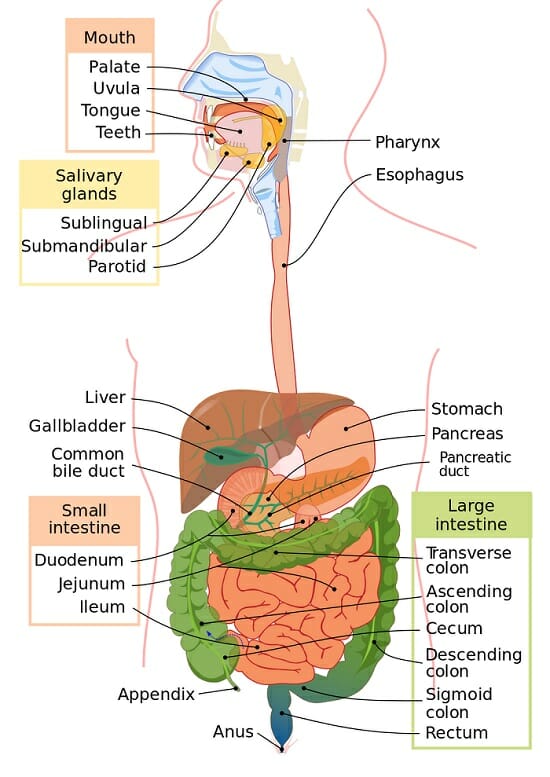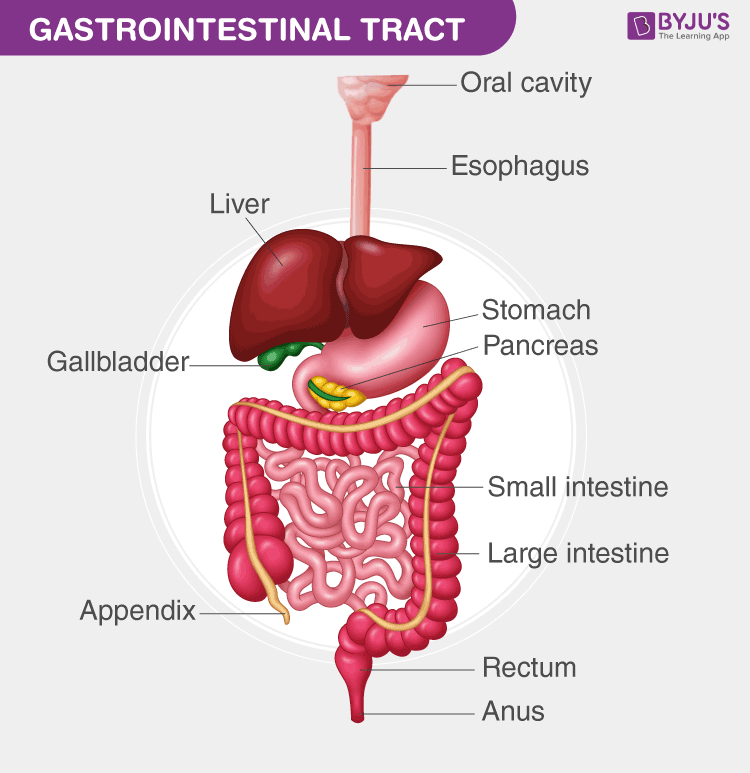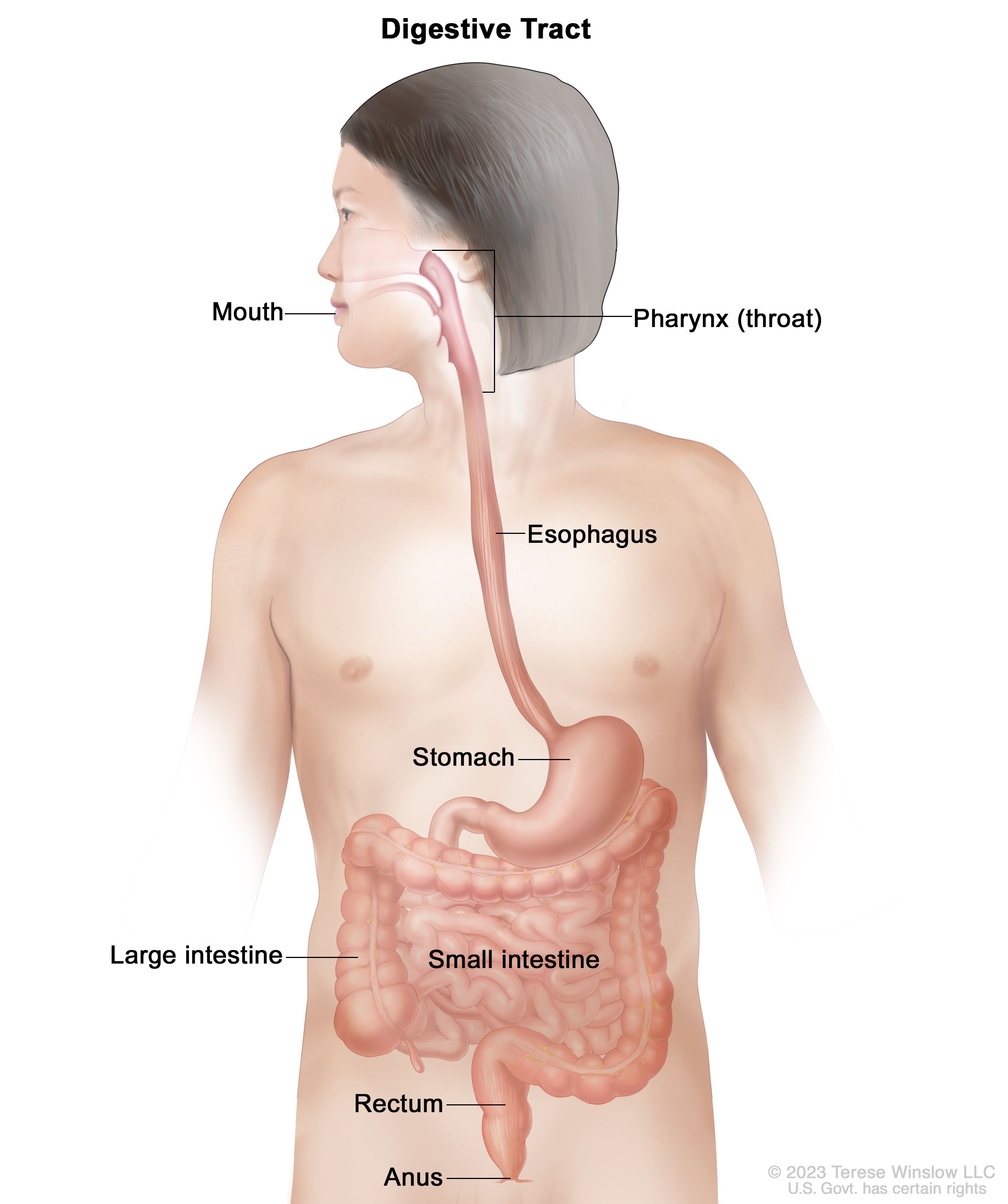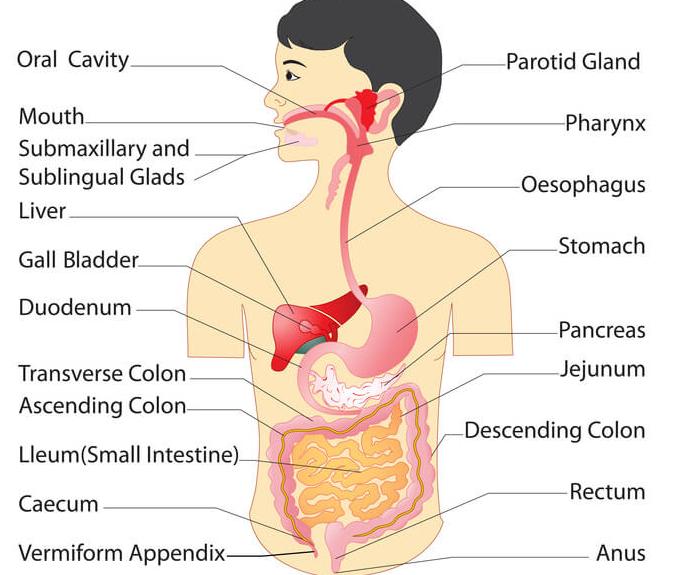The digestive system includes the salivary glands mouth esophagus stomach liver gallbladder. The system of organs responsible for getting food into and out of the body and for making use of food to keep the body healthy.
 The Human Digestive System Science Learning Hub
The Human Digestive System Science Learning Hub
The digestive system begins with the mouth and extends through the esophagus stomach small intestine and large intestine ending with the rectum and anus.

The digestive system definition. Other organs in this system include the liver pancreas gallbladder and appendix. In mammals the system includes the alimentary canal extending from the mouth to the anus and the hormones and enzymes assisting in. A longitudinal assemblage of tissues or organs especially a number of anatomic structures arranged in series and serving a common function such as the gastrointestinal or urinary tract.
Human digestive system system used in the human body for the process of digestion. Digestion is important for breaking down food into nutrients which your body uses for energy growth and cell repair. There are many sources of digestive secretions into the small intestine.
They include the mouth teeth tongue pharynx esophagus stomach and intestines. The bodily system concerned with the ingestion digestion and absorption of food and the discharge of residual wastes and consisting of the digestive tract and accessory glands such as the salivary glands and the pancreas that secrete digestive enzymes First Known Use of digestive system. Digestive system The organs and glands in the body that are responsible for digestion.
The digestive system made up of the gastrointestinal tract GI liver pancreas and gallbladder helps the body digest food. System a group of physiologically or anatomically related organs or parts. Definition of digestive system.
The system by which ingested food is acted upon by physical and chemical means to provide the body with absorbable nutrients and to excrete waste products. Gastrointestinal system systema alimentarium systema digestorium Type of. The GI tract is a series of hollow organs joined in a long twisting tube from the mouth to the anus.
What is the digestive system. Also used in reference to a bundle or fasciculus of nerve fibers having a common origin function and termination within the central nervous system. The human digestive system consists primarily of the digestive tract or the series of structures and organs through which food and liquids pass during their processing into forms absorbable into the bloodstream.
1 n the system that makes food absorbable into the body Synonyms. Digestive system the organs that have as their particular function the ingestion digestion and absorption of food or nutritive elements. Secretions into the small intestine are controlled by nerves including the vagus and hormones.
The most effective stimuli for secretion are local mechanical or chemical stimulations of the intestinal mucous membrane. Digestion is the complex process of turning the food you eat into nutrients which the body uses for energy growth and cell repair needed to survive. Human digestive system - Human digestive system - Secretions.
The digestive system is made up of the gastrointestinal tractalso called the GI tract or digestive tractand the liver pancreas and gallbladder.
 Digestive System Function And Organs Biology Dictionary
Digestive System Function And Organs Biology Dictionary
 Gastrointestinal Tract Definition Anatomy Infection Diseases
Gastrointestinal Tract Definition Anatomy Infection Diseases
 Digestive System Definition Of Digestive System By Medical Dictionary
Digestive System Definition Of Digestive System By Medical Dictionary
 Definition Of Digestive Tract Nci Dictionary Of Cancer Terms National Cancer Institute
Definition Of Digestive Tract Nci Dictionary Of Cancer Terms National Cancer Institute
 Human Digestive System Definition Mechanism Parts And Importance Of Digestion
Human Digestive System Definition Mechanism Parts And Importance Of Digestion
 Digestive System Terms Definitions Schoolworkhelper
Digestive System Terms Definitions Schoolworkhelper
 Human Digestive System Description Parts Functions Britannica
Human Digestive System Description Parts Functions Britannica

